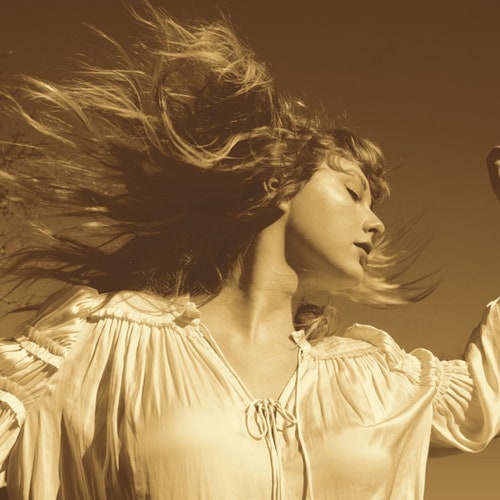Listen to “Love Story (Taylor’s Version)” by Taylor Swift
In the summer of 2019, Taylor Swift took to Tumblr to announce that her former record label, Big Machine, had sold her masters to a company backed by music exec Scooter Braun. As a songwriter, Swift still held her publishing rights, but without influence over the masters, she’d lost a measure of control, like the ability to choose when her recordings could be used in film or advertising. But she wasn’t going down without a fight—she was going to re-record her entire discography, and this time, she’d own the masters. The news sparked countless questions: Would she reimagine older songs, as she had in the past? Where would she start? How would she release the music? After making its debut in a dating app commercial starring Ryan Reynolds, the very first re-recorded song, Swift’s 2008 hit “Love Story,” is here.
This new recording largely remains faithful to the original, as if determined to make Braun’s masters obsolete. Aside from minor changes—the production is slightly more restrained, and Swift’s mature vocals are subtler, with no trace of country twang—it’s hard to tell the difference. This is the kind of endeavor that a detail-oriented person like Swift excels at: She employed the same fiddle player and backup singer from the original record, reunited the members of her touring band from the time, and doubled down on her lucky number 13 (it has been 13 years since the release of the original Fearless, while the new version’s announcement date and release date each add up to 13). If most mortal millennials tried to recreate our teenage creative endeavors, we would be sharing Twilight fan fiction or painfully awkward YouTube dance videos. It speaks to Taylor’s wunderkind status that she can revisit the work of her teen self without embarrassment.
Swift is also invested in reinvention, and her last few albums are almost antithetical to who she was on Fearless. She now sings about love with skepticism and remove; she drinks wine and alludes to sex; she delves into self-doubt and takes accountability for selfishness. But before that, she was a brash teenage girl unafraid of the intensity of her romantic desire, and though “Love Story” isn’t her best song, it illustrates her imaginative power (she wrote it, she’s said, before she had any “knowledge of what love was”). There is something wonderfully audacious about a teen girl rewriting the most famous Shakespearean tragedy as, well, a love story. Now, years later, “Love Story” becomes another type of performance: an adult woman’s display of ownership and agency.
